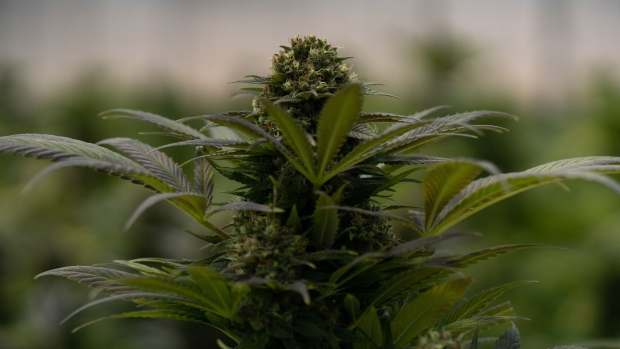Apr 12, 2023
Germany Inches Toward Legalizing Pot With Scaled-Back Proposal
, Bloomberg News

(Bloomberg) -- Germany’s ruling coalition presented a scaled-back plan to decriminalize personal use of cannabis in Europe’s largest economy.
The proposal would allow adults to possess as much as 25 grams (0.9 ounce) of marijuana and join nonprofit “social clubs” to purchase the drug, according to a joint press release from Germany’s health, agriculture and justice ministries on Wednesday.
The government initially proposed a wide-ranging legalization in an October position paper. But after negotiations with the European Union, it has limited the scope of its ambitions, and plans to first decriminalize marijuana and only later consider a law to allow tests of commercial sales.
“It’s a scientific pilot project, it’s not legalization,” said Niklas Kouparanis, chief executive officer of the Bloomwell Group, one of Germany’s biggest legal cannabis producers.
The government is expecting to submit a draft bill on the decriminalization measures this month, and a parliamentary vote could happen as early as the summer. While restrictions on marijuana have been loosened in some smaller EU states and its sale is generally tolerated in the Netherlands, Germany would be the biggest member moving toward allowing recreational use.
Germany’s decisions will shape a cannabis market that Prohibition Partners, a cannabis data firm, sees growing to €2.1 billion ($2.3 billion) of annual sales by 2027. Germany, already Europe’s biggest medical market for cannabis, is also one of the first major countries to move ahead with legalization plans. An estimated 427,000 patients in Europe will consume medical cannabis this year, and that will rise to approximately 1.4 million patients by 2027, according to Prohibition Partners.
The ruling coalition says the measures will allow the clubs to cultivate and distribute cannabis to members for personal use. They will precede debate, planned after parliament’s summer break, over a separate bill that would create five-year pilot projects that could allow for some commercial stores and lead to full legalization.
“Specialized stores should be able to come, but only after the successful pilot projects,” German Health Minister Karl Lauterbach said at a press conference in Berlin on Wednesday.
Bloomwell’s Kouparanis said the proposal represents a step forward, even if it’s less ambitious than previous plans.
“It’s more worthy than having ongoing prohibition,” he said, adding that barriers to the legal production could fuel illicit marijuana.
Elsewhere, a longer wind-up period before setting up legal sales has caused headaches — such as the proliferation of a black market that’s hard to stamp out. New York, for example, is still struggling to close down unlicensed weed shops in many neighborhoods months after legal, licensed sales have begun.
Kouparanis said that this could also happen in Germany under the new plan, calling on the pilot projects to be conducted “as fast as possible.”
“While we fuel the illicit market with decriminalization, the legal market cannot ramp up capacity,” he said.
--With assistance from Tiffany Kary.
©2023 Bloomberg L.P.


